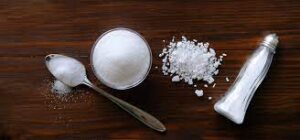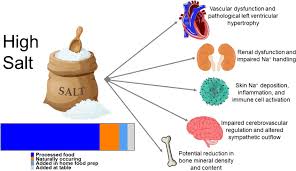Embarking on a journey towards better health begins with a simple yet powerful choice –Steps for Reducing Population Salt Intake. Imagine a world where we effortlessly enhance well-being by making mindful decisions about what goes into our bodies. Today, we dive into the realm of salt, that tiny but impactful ingredient in our daily diets. By understanding the pivotal role it plays in our health, we can make informed choices to cut down on excess sodium. Join us as we unravel the secrets to a healthier lifestyle, where the path to wellness starts with one key phrase: Reducing population sodium/salt intake.

Introduction:
Embarking on a journey towards improved health involves a crucial step – Reducing population sodium/salt intake. In this comprehensive guide, we explore the health impacts of high sodium intake, delve into recommended sodium levels, identify common sources of excessive sodium, and shed light on public awareness initiatives.
Health Impacts of High Sodium Intake:
Discover the ripple effects of excessive sodium on health, from elevated blood pressure to increased risk of cardiovascular diseases. Understanding these impacts is the first step toward informed decision-making.
Understanding Recommended Sodium Levels:
Navigate the maze of sodium recommendations to find the right balance for your health. Uncover guidelines that empower you to make mindful choices in your daily diet.
Common Sources of Excessive Sodium:
Explore the unexpected culprits of high sodium content in your meals. From processed foods to restaurant dishes, learn to identify and manage sources of excessive sodium.
Public Awareness Initiatives:
Join the movement towards healthier living through public awareness initiatives. Discover campaigns and programs aimed at educating communities about the importance of reducing sodium intake.
Strategies for Reducing Sodium Intake:
Equip yourself with practical strategies to cut down on sodium without sacrificing flavor. From label reading to mindful cooking, adopt habits that make sodium reduction a seamless part of your lifestyle.
Sodium Reduction in Specific Demographics:
Recognize the unique challenges different demographics face in reducing sodium intake. Tailor your approach to address specific needs, fostering inclusivity in the journey towards better health.
Collaborative Efforts in Sodium Reduction:
Explore the power of collaboration in sodium reduction efforts. From community partnerships to industry involvement, witness the collective impact of joint initiatives.
The Future of Sodium Reduction Initiatives:
Peer into the horizon of sodium reduction initiatives. From technological advancements to evolving policies, stay informed about the future landscape of sodium reduction.

Conclusion:
As we wrap up our guide on Reducing population sodium/salt intake, remember that small changes in sodium habits can lead to significant improvements in health. Armed with knowledge and practical strategies, you have the tools to make a positive impact on your well-being and contribute to a healthier future for all.
FAQS:
Q1:What happens to your body when you reduce sodium intake?
Reducing sodium intake can have various effects on the body. When you decrease your sodium intake, it often leads to a reduction in water retention, which can contribute to lower blood pressure. Sodium plays a crucial role in fluid balance, and reducing its intake may also have positive impacts on cardiovascular health.
Q2:What is a great way to reduce salt or sodium intake?
A great way to reduce salt or sodium intake is to be mindful of food choices and opt for fresh, whole foods over processed and packaged ones. Cooking at home with herbs and spices instead of relying on salt for flavoring can also be effective. Additionally, reading food labels and choosing low-sodium alternatives can contribute to an overall reduction in sodium consumption.
Q3:What are the benefits of reducing dietary salt sodium intake?
The benefits of reducing dietary salt or sodium intake are numerous. Lowering blood pressure is a key advantage, reducing the risk of cardiovascular diseases such as heart attacks and strokes. It can also help in preventing fluid retention, and kidney problems, and may have positive effects on bone health.
Q4:What groups of people should consume a decreased amount of sodium?
Certain groups of people, such as those with hypertension, kidney disease, or heart conditions, should consume a decreased amount of sodium. Additionally, individuals at risk of developing these conditions and those belonging to specific demographic groups, like older adults, may benefit from moderating their sodium intake. However, it’s essential to consult with a healthcare professional for personalized advice based on individual health conditions and requirements.
